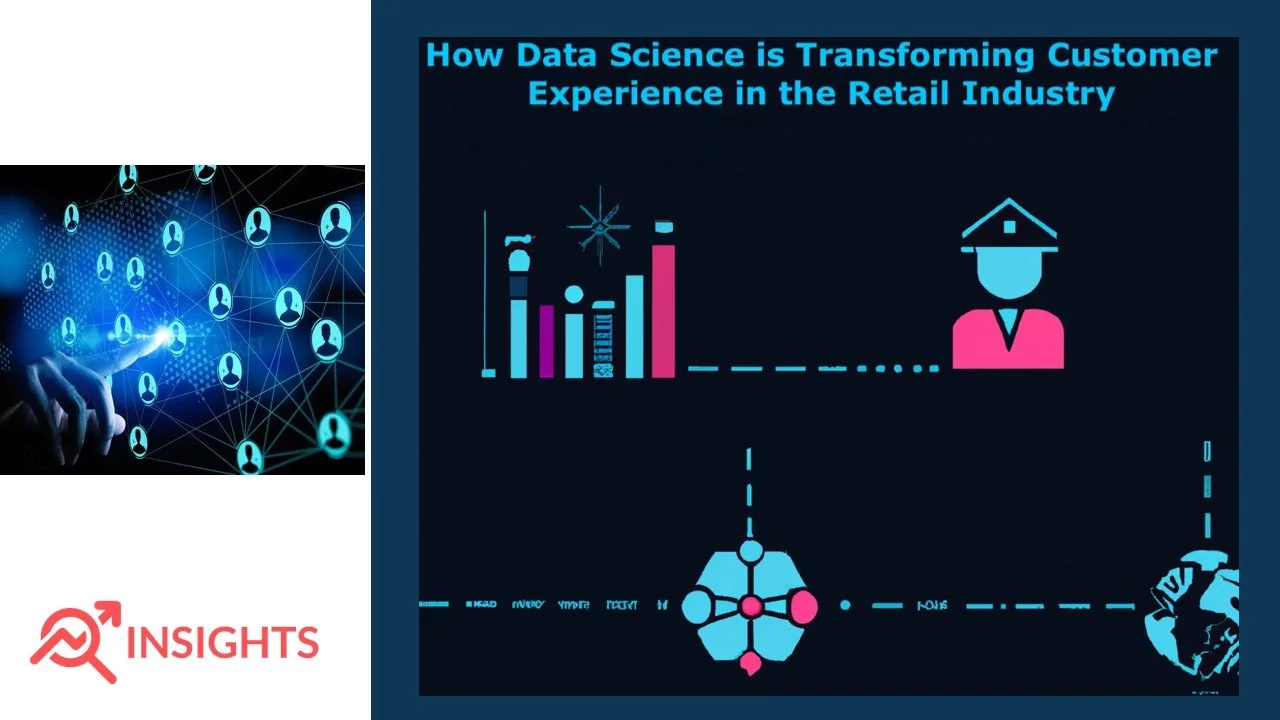The retail industry, once a brick-and-mortar battleground for shelf space and customer attention, has undergone a dramatic metamorphosis. Today, data science reigns supreme, weaving its magic to personalize experiences, optimize operations, and transform the way customers interact with brands. This article delves into how data science is redefining customer experience (CX) in the retail landscape.
Unlocking the Power of Customer Data
Traditionally, retailers relied on intuition and gut feeling to understand their customers. However, data science empowers them to leverage a wealth of customer data – purchase history, demographics, browsing behavior, and even social media interactions. By analyzing this data through techniques like machine learning and statistical modeling, retailers can gain a 360-degree view of their customers, uncovering:
- Customer Preferences: Data science helps identify preferred brands, product categories, and price points, enabling retailers to tailor their product offerings and promotions to resonate with individual customer segments.
- Buying Patterns: Unveiling patterns in customer buying behavior allows for targeted recommendations and upselling strategies. Imagine a customer who frequently purchases running shoes – data science can recommend complementary items like socks or energy gels, maximizing customer satisfaction and revenue.
- Customer Segmentation: By segmenting customers based on shared characteristics, retailers can create targeted marketing campaigns that speak directly to their needs and interests. This personalized approach fosters deeper customer engagement compared to generic mass marketing tactics.
Building Customer Loyalty Through Personalization
While personalization is a powerful tool, data science offers even more. Here’s how it fosters customer loyalty:
Targeted Marketing Campaigns:
Imagine receiving email promotions or social media ads showcasing products you’d genuinely be interested in. Data science fuels targeted marketing by analyzing customer data to segment audiences and deliver personalized messaging that resonates with each group.
Chatbots and Virtual Assistants:
Powered by natural language processing (NLP) and machine learning, chatbots and virtual assistants provide 24/7 customer support, personalized product recommendations, and answer frequently asked questions. This enhances convenience and streamlines the customer journey.
Predictive Maintenance:
Data science can analyze sensor data from physical stores to predict equipment failures or inventory shortages. This proactive approach minimizes disruptions and ensures a smooth shopping experience for customers.
Customer Churn Prediction:
Data science models can identify customers at risk of churning (abandoning the brand). Armed with this knowledge, retailers can implement targeted retention strategies like loyalty programs or personalized discounts.
Sentiment Analysis:
By analyzing customer reviews and social media conversations, data science can gauge customer sentiment towards the brand and products. This allows retailers to identify areas for improvement and proactively address customer concerns.
Optimizing Operations for a Smoother Experience
Data science isn’t just about personalization; it optimizes the entire retail ecosystem:
- Demand Forecasting: Accurate demand forecasting, powered by data science, ensures stores have the right products in stock at the right time. This reduces the likelihood of stockouts and overstocking, leading to a more efficient supply chain and a smoother customer experience.
- Fraud Detection: Data science algorithms can analyze purchase patterns to identify potentially fraudulent transactions in real-time. This protects both retailers and customers, fostering a sense of security and trust within the shopping experience.
- Store Layout Optimization: Data science can analyze customer foot traffic patterns within stores to optimize product placement and layout. This ensures high-demand items are readily accessible, while impulse purchases are strategically positioned to maximize sales.
Cornerstone of a Positive Customer Experience
Data science fuels the engine of personalization, the cornerstone of a positive customer experience. Here are some key ways it personalizes the shopping journey:
- Product Recommendations: Recommender systems powered by data science analyze a customer’s past purchases and browsing behavior to suggest relevant products they’re likely to be interested in. This not only enhances the shopping experience but also increases the likelihood of conversion.
- Dynamic Pricing: Data science can be used to optimize pricing strategies based on real-time factors like demand, competitor pricing, and customer behavior. This ensures customers receive competitive prices while maximizing profitability for the retailer.
- Omnichannel Experience: In today’s omnichannel retail landscape, a seamless buying experience across online and physical stores is crucial. Data science helps unify customer data across various touchpoints, allowing retailers to deliver a consistent and personalized experience regardless of the channel.
Future of Retail: Data-Driven Decisions for Success
As data science continues to evolve, its impact on the retail industry will only intensify. We can expect to see:
- Hyper-personalization: Customer experiences will become even more individualized, catering to specific needs and preferences in real-time.
- AI-powered chatbots: Conversational AI will revolutionize customer service, providing 24/7 support and personalized product recommendations.
- Data-driven store layouts: Retailers will leverage data science to optimize store layouts, product placement, and even in-store promotions for maximum customer impact.
Conclusion
data science is not just transforming customer experience – it’s redefining the very essence of retail. By harnessing the power of data, retailers can create a customer-centric shopping experience that fosters loyalty, drives sales, and positions them for success in the ever-evolving retail landscape.
